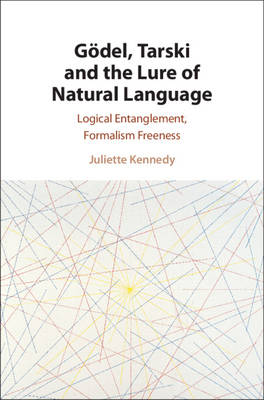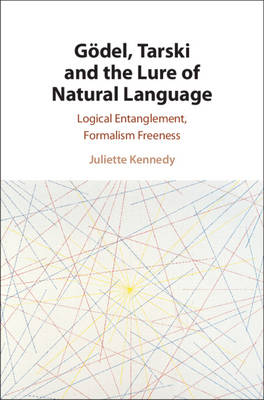
- Afhalen na 1 uur in een winkel met voorraad
- Gratis thuislevering in België vanaf € 30
- Ruim aanbod met 7 miljoen producten
- Afhalen na 1 uur in een winkel met voorraad
- Gratis thuislevering in België vanaf € 30
- Ruim aanbod met 7 miljoen producten
Zoeken
Gödel, Tarski and the Lure of Natural Language
Logical Entanglement, Formalism Freeness
Juliette Kennedy
Hardcover | Engels
€ 172,95
+ 345 punten
Omschrijving
Is mathematics 'entangled' with its various formalisations? Or are the central concepts of mathematics largely insensitive to formalisation, or 'formalism free'? What is the semantic point of view and how is it implemented in foundational practice? Does a given semantic framework always have an implicit syntax? Inspired by what she calls the 'natural language moves' of Gödel and Tarski, Juliette Kennedy considers what roles the concepts of 'entanglement' and 'formalism freeness' play in a range of logical settings, from computability and set theory to model theory and second order logic, to logicality, developing an entirely original philosophy of mathematics along the way. The treatment is historically, logically and set-theoretically rich, and topics such as naturalism and foundations receive their due, but now with a new twist.
Specificaties
Betrokkenen
- Auteur(s):
- Uitgeverij:
Inhoud
- Aantal bladzijden:
- 220
- Taal:
- Engels
Eigenschappen
- Productcode (EAN):
- 9781107012578
- Verschijningsdatum:
- 17/12/2020
- Uitvoering:
- Hardcover
- Formaat:
- Genaaid
- Afmetingen:
- 152 mm x 229 mm
- Gewicht:
- 435 g

Alleen bij Standaard Boekhandel
+ 345 punten op je klantenkaart van Standaard Boekhandel
Beoordelingen
We publiceren alleen reviews die voldoen aan de voorwaarden voor reviews. Bekijk onze voorwaarden voor reviews.











